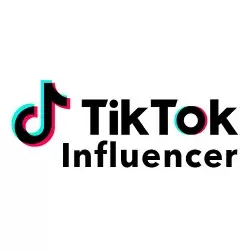Digital Marketing
Influencer Marketing
Influencer marketing is a form of marketing that focuses on using influential individuals or "influencers" to promote a brand, product, or service to their followers or audience on social media platforms. These influencers typically have a large and engaged following, often within a specific niche or industry.
Here are some key points to understand about influencer marketing:
-
Influencers: Influencers are individuals who have established credibility and a significant following on platforms like Instagram, YouTube, TikTok, or blogs. They can be celebrities, industry experts, content creators, or even regular people who have built a loyal and engaged audience.
-
Types of influencers: Influencers can be categorized based on their follower count, niche, or level of influence. They are commonly classified as nano-influencers (1,000 to 10,000 followers), micro-influencers (10,000 to 100,000 followers), macro-influencers (100,000 to 1 million followers), and mega-influencers (over 1 million followers).
-
Brand collaborations: Influencer marketing involves collaborations between brands and influencers to create sponsored content that promotes the brand's products or services. These collaborations can take various forms, such as sponsored posts, product reviews, giveaways, brand ambassadorships, or even co-creating products.
-
Authenticity and trust: Influencer marketing is successful because influencers have built trust and credibility with their audience. Their followers see them as authentic and reliable sources of information and recommendations. As a result, when an influencer promotes a brand or product, it can have a significant impact on their followers' purchasing decisions.
-
Targeted reach: Influencers often specialize in specific niches, such as fashion, beauty, fitness, travel, or technology. Brands can leverage influencers' expertise and target specific audiences that align with their target market. This targeted approach helps reach potential customers who are more likely to be interested in the brand's offerings.
-
Measurement and ROI: Measuring the success of influencer marketing campaigns can be challenging. Brands typically track metrics such as engagement (likes, comments, shares), reach (number of people who saw the content), click-through rates, and conversions. Additionally, using specific tracking links or discount codes unique to each influencer can help assess the return on investment (ROI) of the campaign.
-
Regulations and disclosure: Influencer marketing is subject to regulations and guidelines to ensure transparency and protect consumers. For example, the U.S. Federal Trade Commission (FTC) requires influencers to disclose their relationships with brands through clear and conspicuous disclosures, such as #ad or #sponsored, to indicate that the content is sponsored.
In summary, influencer marketing leverages the reach, influence, and credibility of social media influencers to promote brands and products. It has become an essential component of many marketing strategies due to its potential to reach highly engaged audiences and drive brand awareness, credibility, and sales.




